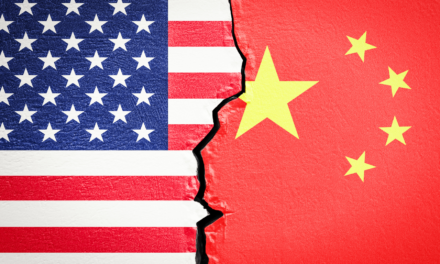A Roundtable Discussion
Organized by:China Development Brief, Fahamu, Focus on the Global South and Transnational Institute
In Cooperation with: Christian Aid, Misereor, Oxfam Nederland (NOVIB) and Oxfam Hong Kong (Beijing Office)
China’s historical relations with Africa spans different epochs, which shifted from one based on socialist and anti imperialist solidarity in the 1960s to that of development cooperation in the 1990s. In the current period, which is marked by China’s rising power ingeo-political and economic spheres, many are quick to describe the new partnership as a new case of colonialism wherein Africancountries supply their raw materials to China with the later sending its manufactured goods to Africa under the paradigm of free trade.
The alarm bells that are ringing in various policy circles, the academic community and activist groups emanates from what appears to be China’s duplication of the same social and environmentally destructive economic model already followed by the West. The lack of benchmarks in Chinese investments and development financing is indeed worrisome. However, many are also asking the question whether the concern being raised is genuinely about Africa and the welfare of the African people or whether it is actually about protecting Western interests in the region.
This Roundtable Discussion brought concerned researchers and campaigners from civil society organizations and institutions from within and outside China to discuss and analyze China’s new role in the South and the global system with Africa as a focus of study. Given the myriad of literatures available now that are discussing China’s purported emergence as a new economic and political superpower, it is of great importance to look at the issues involved with a fuller and more nuanced understanding of the country’s geo-political positioning in Africa and within the South. Such understanding also touches on the increasing competition between China and the older industrialized countries.
The discussions and workshops identified possible arenas and strategies for intervention and influence from which to build future cooperative and solidarity endeavors between Chinese civil society and international groups. Participants came from organizations that are focused on themes that concern development, environment, social justice, operations of international financial institutions and their impacts to local communities.
The event was held in the shadow of this year’s African Development Bank Group, which held its Annual Meeting in Shanghai from May 11 to 18. The important gathering highlighted the strengthening relations between China and Africa.
The Organizers
China Development Brief
– is an independent, non-profit publication devoted to strengthening constructive engagement between China and other countries. It is established in 1996. CDB’s core, English language service is a monthly, electronic newsletter that reports on environment, development and civil society in China to a readership of decision and opinion makers in international development agencies, NGOs, research academies, policy think-tanks and mass media.
Fahamu
– a not-for-profit organisation that supports the struggle for human rights and social justice in Africa by supporting social justice advocacy through the use of information and communication technologies; stimulation of debate, discussion and
analysis; distribution of news and information; and development of training materials and running distance-learning courses. The word Fahamu means ‘understanding’ or ‘consciousness’ in Kiswahili. Fahamu comprises a small core of highly skilled and experienced staff based in Oxford (UK), Cape Town (South Africa) and in Nairobi (Kenya).
Focus on the Global South
– Focus is a non-governmental organization with staff working in Thailand, the Philippines and India. Focus was established in Bangkok in 1995 and is affiliated with the Chulalongkorn University Social Research Institute. Focus combines policy research, advocacy, activism and grassroots capacity building in order to generate critical analysis and encourage debates on national and international policies related to corporate-led globalization, neo-liberalism and
militarization. It has four programmatic areas of work: Trade, Alternatives, Defending and Reclaiming the Commons and Peace and People’s Security. The China Programme cut across them.
Transnational Institute
– Founded in 1974, TNI is an international network of activist-scholars committed to critical analyses of the global problems of today and tomorrow, with a view to providing intellectual support to those movements concerned to steer the world in a democratic, equitable and environmentally sustainable direction. In the spirit of public scholarship, and aligned to no political party, TNI seeks to create and promote international co-operation in analysing and finding possible solutions to such global problems as militarism and conflict, poverty and marginalisation, social injustice and environmental degradation.







